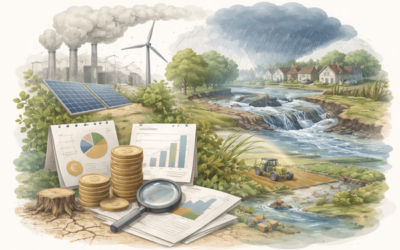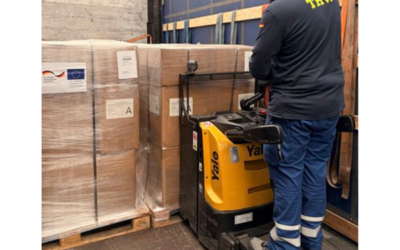The DKKV is…
German Committee for Disaster Reduction e.V. (ger.: Deutsches Komitee Katastrophenvorsorge e.V.)
Newsblog
“Navigating Urban Development” – Open Access Publication on Sustainable Urban Transformation
The open-access publication Navigating Urban Development – Learnings from East and Southeast Asia explores pathways for sustainable urban transformation in the face of rapid urbanisation and the escalating climate crisis. Edited by Vivienne Mayer, Anika Slawski and...
UBA Handbook on Environmental Costs 4.0: Climate damages from German emissions estimated at around €647 billion
The Umweltbundesamt (German Environment Agency, UBA) has published the updated “Handbook on Environmental Costs – Methodological Convention 4.0”, providing revised environmental cost factors to support evidence-based political and economic decision-making. According...
Cyclone Gezani hits Madagascar hard – THW provides relief supplies
On 10 February 2026, tropical cyclone Gezani hit the east coast of Madagascar with wind speeds of up to 250 kilometres per hour, causing severe devastation. According to official reports, at least 31 people were killed and many more were injured. Several people are...
UNDRR launches free online course “Covering Disasters from a Different Lens”
The United Nations Office for Disaster Risk Reduction (UNDRR) has published a free online course for journalists and media professionals worldwide entitled ‘Covering Disasters from a Different Lens’. The aim is to make reporting on disasters fact-based, responsible...
Follow us





What is disaster risk reduction?
Storms, natural hazards and extreme events can quickly become a danger to people and the environment. But climate change, extreme urbanization, power outages and fires also offer potential hazards.
A disaster occurs when the functioning of a community or society is impaired or interrupted and, as a result, high human, material, economic and ecological losses occur that cannot be managed alone.
Precautionary measures can help to reduce the consequences and impact of the disaster. Depending on the hazard and personal circumstances, the precautionary measures to be taken may vary.
Find out more about potential hazards and individual precautionary measures on our topic pages.





